n. a person ill-prepared for Christmas

n. a person ill-prepared for Christmas

In November 1878, a polar bear brought back by Arctic whalers escaped into the streets of Dundee. After charging up Commercial St, it broke into a clothier’s shop on the High St (it’s now a gift shop).

It was recaptured after it got distracted by a mirror. The tailor and a customer were in the shop at the time and hid behind the counter. Amazingly no-one (including the bear) was injured, except for a dress mannequin in the shop window– it got badly mauled. An ex-sailor who worked for the Theatre Royal made a noose, marched in the shop, and threw it round its neck. Cool as ye like.

Illustrated Police News. 23rd November 1878. pg. 1.
Edinburgh Evening News. 8th Novemeber 1878. pg. 2.
n. In Gaelic folklore, the smallest of all animals. Also known as a gigelorum. The only thing being known about it is that it lives in the ears of mites.
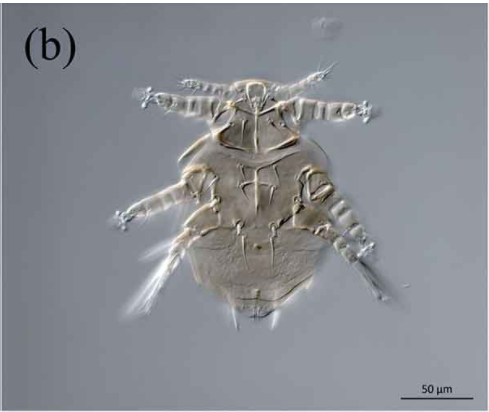
At 79 µm, microdispid mites are the smallest known arthropods. The mite pictured lives as a hitchhiker on termites in Ethiopia (including on the termites “ears”).
And if anyone is curious, termites’ ears are just above their knees.
Khaustov, A.A., and W. Zelalem (2017) Two new genera of mite family Microdispidae (Acari: Heterostigmata) associated with Macrotermes subhyalinus (Isoptera: Termitidae) from Ethiopia. International Journal of Acarology 43: 223-231
Campbell, J.G. (1900) Superstitions of the Highlands and Islands of Scotland. James MacLehose and Sons, Glasgow. pg. 220
In August 1809, an unusually long tapeworm (Taenia) was removed from a patient in Perth. The world record for a human tapeworm is 82ft (recorded in 1978). The Perth tapeworm measured in at just shy of 150ft… when it snapped.
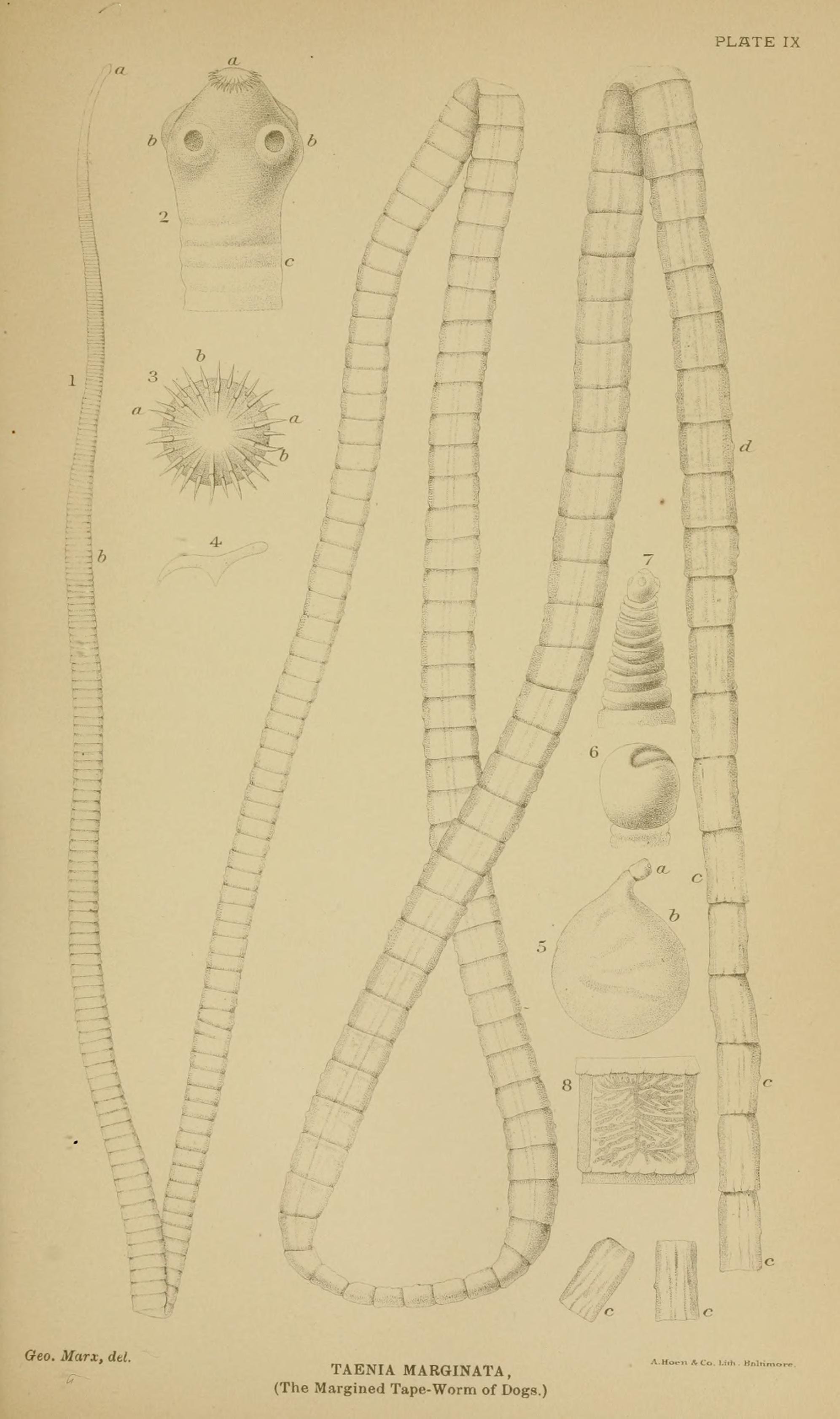
Perthshire Courier, 31st August 1809, pg. 3
A February sermon in Forfar Parish Church in 1833 had to be abandoned due to an unwanted visitor. In the middle of prayer, a tame jackdaw started divebombing the minister, William Clugston, and wouldn’t stop perching on his head.
Perthshire Advertiser. 7th February 1833. pg. 2
Billie Ritchie (1879-1921) was a Glaswegian actor who built a career on impersonating Charlie Chaplin, though he always claimed that Chaplin stole his act and look. He died after being savaged by ostriches he was mistreating on set.
Dundee Evening Telegraph. 4th August 1921. pg. 6

From 21st-23rd August 1872, a large unidentified animal was seen in the Sound of Sleat. Estimates of its length varied between 45 and 80 feet but was described as a “serpent”. Two church ministers published a report in ‘The Zoologist’ with these diagrams.
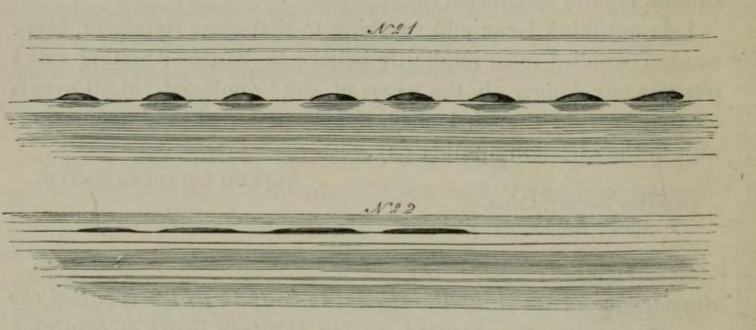
At least 13 people reported seeing the same thing, including fishermen who said it was “no seal or porpoise”. This map shows where it was seen over those three days. The colours indicate independent observations. (It was also seen off Eigg.)
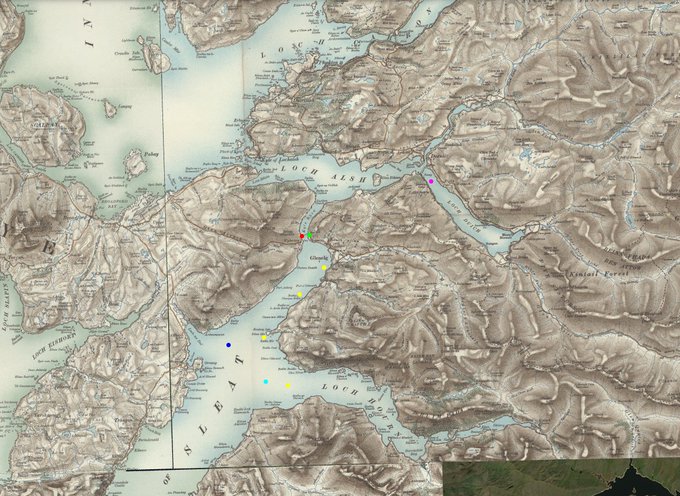
They don’t make cats like they used to… Showed my cat this handbill from 1830s Edinburgh. Nope.
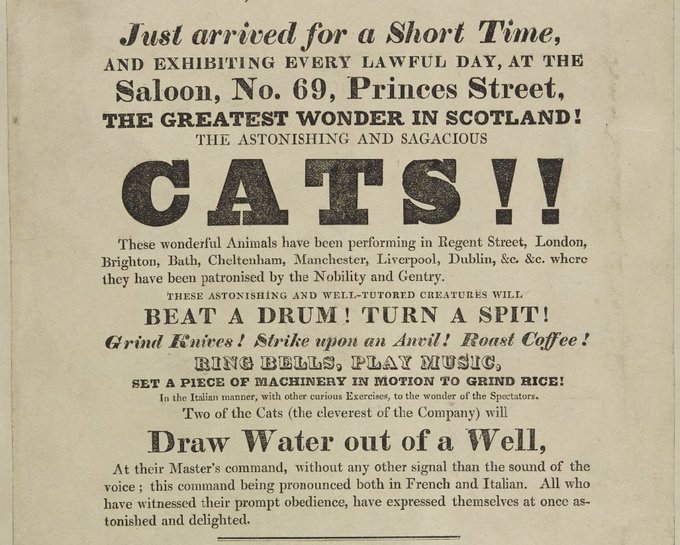

National Library of Scotland. Broadsides from the Crawford Collection. https://digital.nls.uk/188069617
In his 1646 history of the Church in Scotland, David Calderwood very matter-of-factly records that: On Monday 3rd June 1622, “A fyrie dragon, both greate and long” flew over Scotland and was “spouting fyre from her”. Was no big deal.
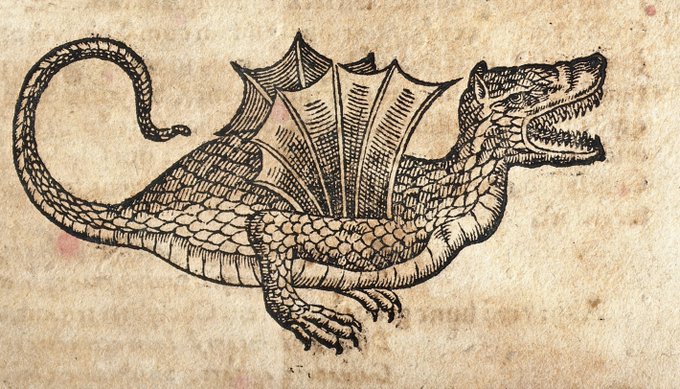
Thomson, T. (ed.) (1845) The History of the Kirk of Scotland, by Mr. David Calderwood. vol. 7. Wodrow Society, Edinburgh. pg. 548
In October 1833, a dead 83ft fin whale washed ashore at Rosyth. Locals built a roof and walls around it and charged admission to buy coal and meal for the parish poor.

For comparison, the average Atlantic fin whale is 65ft. The longest ever recorded was 85ft.

Perthshire Courier. 10th October 1833. pg. 2.